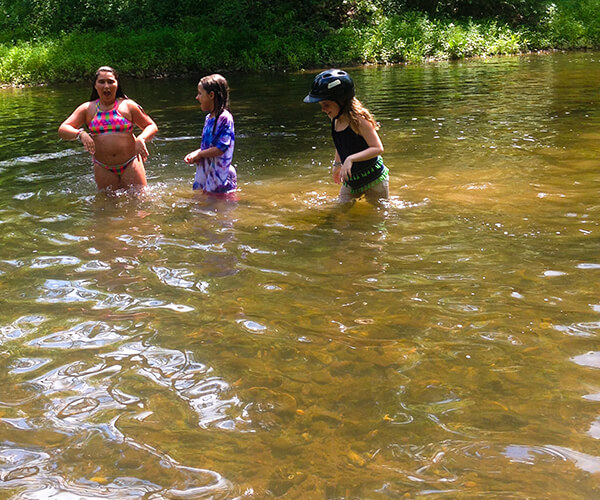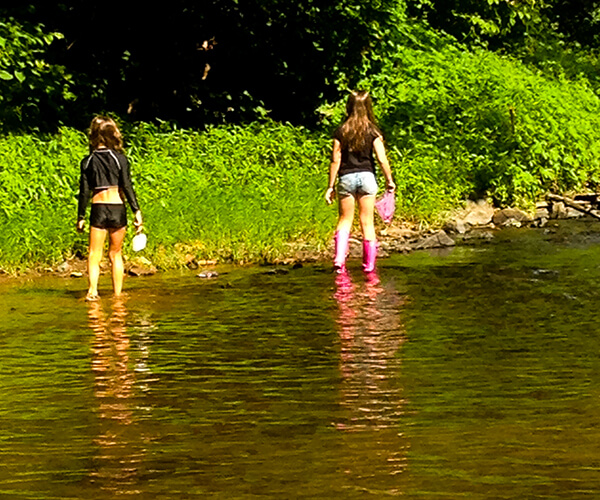Our Pledge
At River Edge Farm, we are committed to sustainable farming practices. Sustainable farming practices uphold and improve the health and vitality of our entire farm environment: soil, water, air, plants, animals and people.
All of the facets of the farm work together in a universally beneficial system. The horses produce manure which is composted along with our food scraps and general lawn waste; the compost is used to fertilize the pastures which in turn grow nutritious grass to feed the horses, as well as to fertilize the garden’s soil, which will then produce a bounty of vegetables and other crops to sustain us on the farm.
Our organic garden and orchard are kept insect-free using organic natural products such as pepper, garlic, and plant oils. We have eliminated the use of chemical pesticides completely.
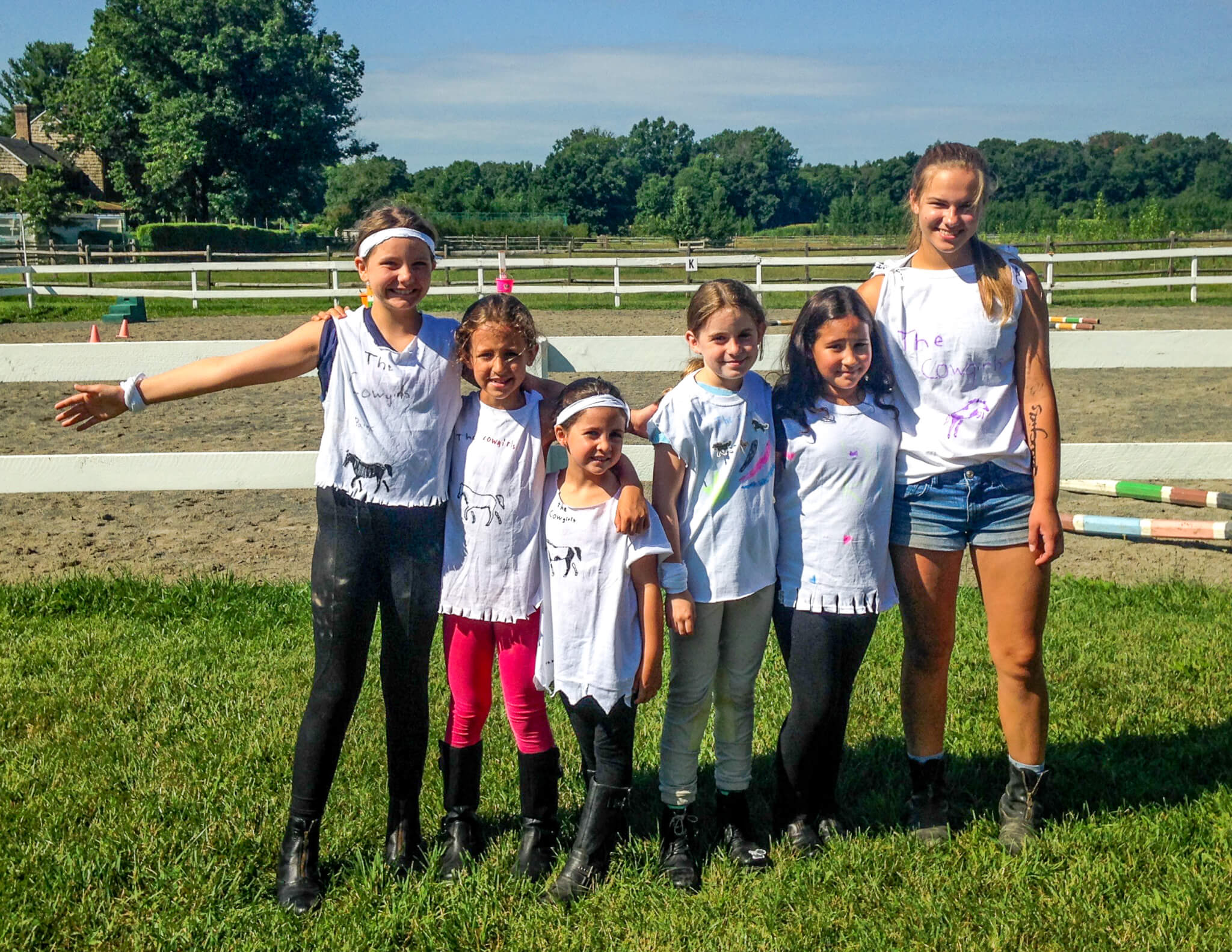
We consistently plant New Jersey native trees around the farm for soil conservation purposes, protection of watersheds, and as a screen for windbreaks. The trees that we have planted will also provide an expanded habitat for local birds (which prey on the insects that prey on crops) as well as shade for horses and people. We have a beloved camp tradition of planting a tree in the name of each camper who has attended River Edge Farm Riding Camp for 3 or 5 years.
The methods that we have adopted at River Edge Farm with respect to environmental concerns and broader social considerations are reflected in farm management practices as well as our individual lifestyle choices.
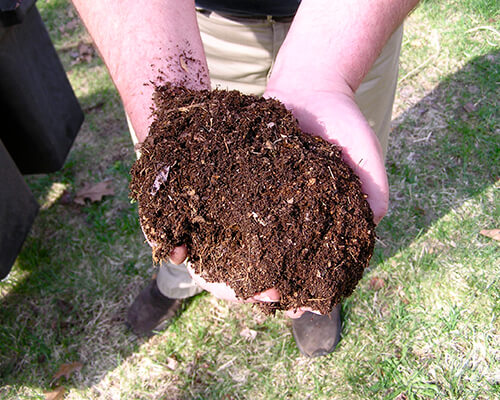
Waste Reduction
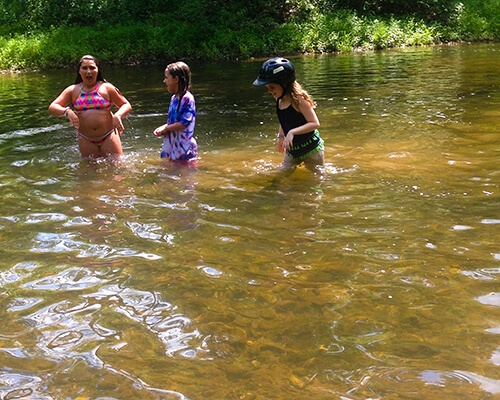
Water Conservation
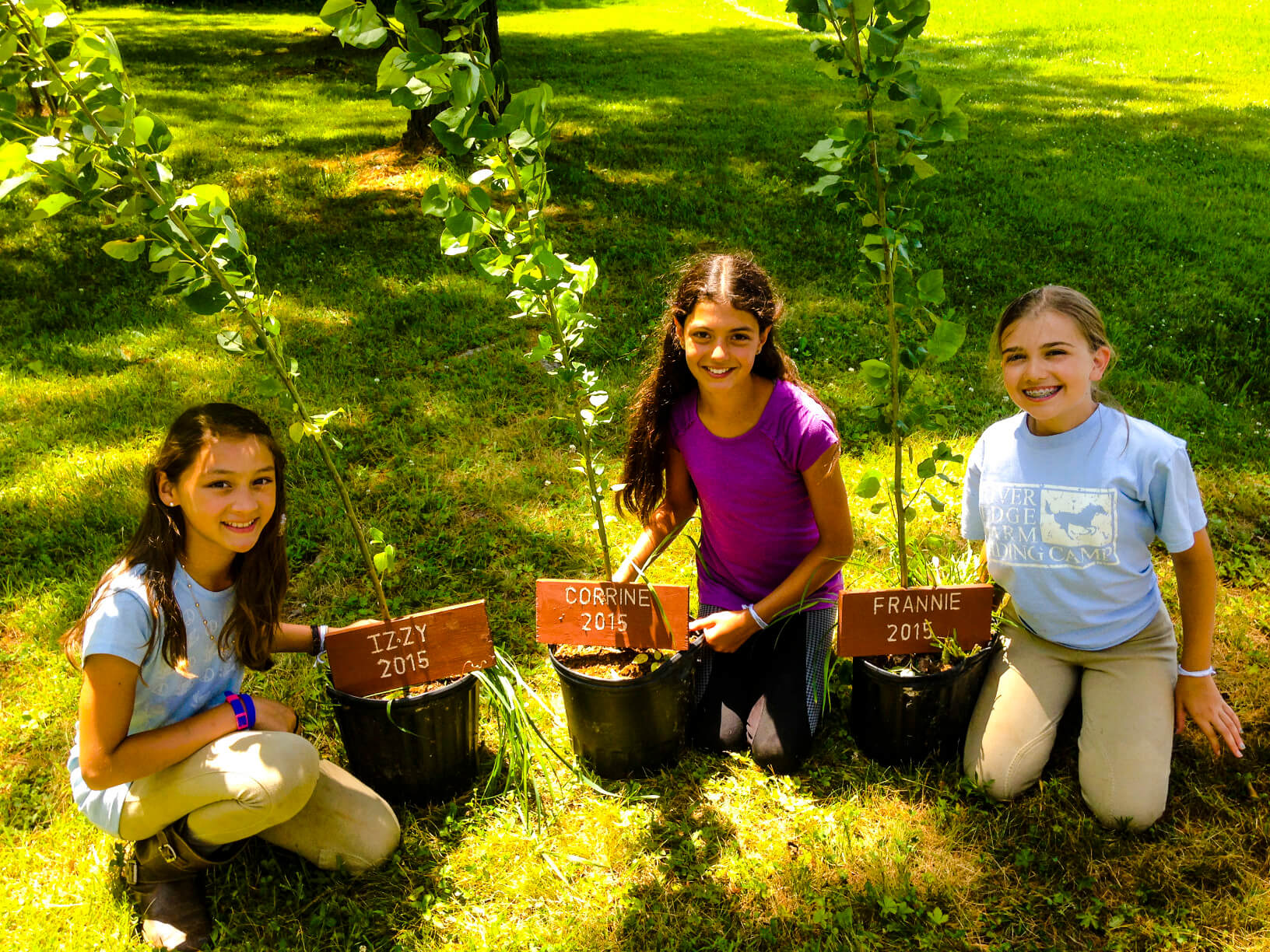
Paper Waste
We firmly believe in teaching children the importance of these concepts, including the value and benefits of eating locally grown foods. We strive to show our campers how to be stewards of their environment.
At camp we have developed experiential programs for fostering connection with nature. This student-centered learning engages campers with important environmental messages in a fun, hands-on manner.
The many components of the program encourage campers to become more environmentally aware. Campers are exposed to topics such as water and soil conservation, environmental ethics/leave no trace, habitats, ornithology (birds), entomology (bugs), foraging and collecting, recycling/composting, soil studies, weather, wetlands, wildflowers, wildlife viewing, pasture grasses, etc.


